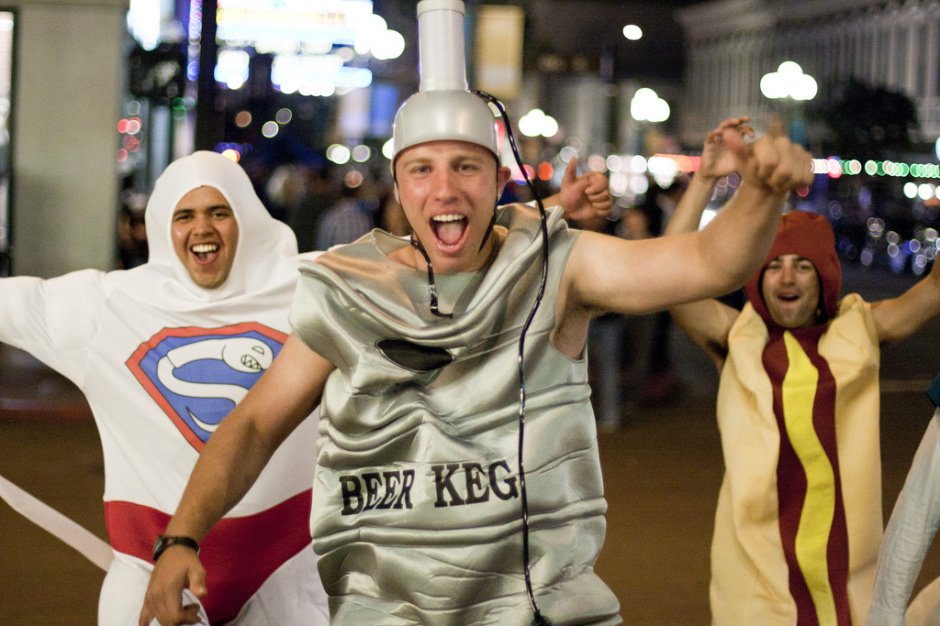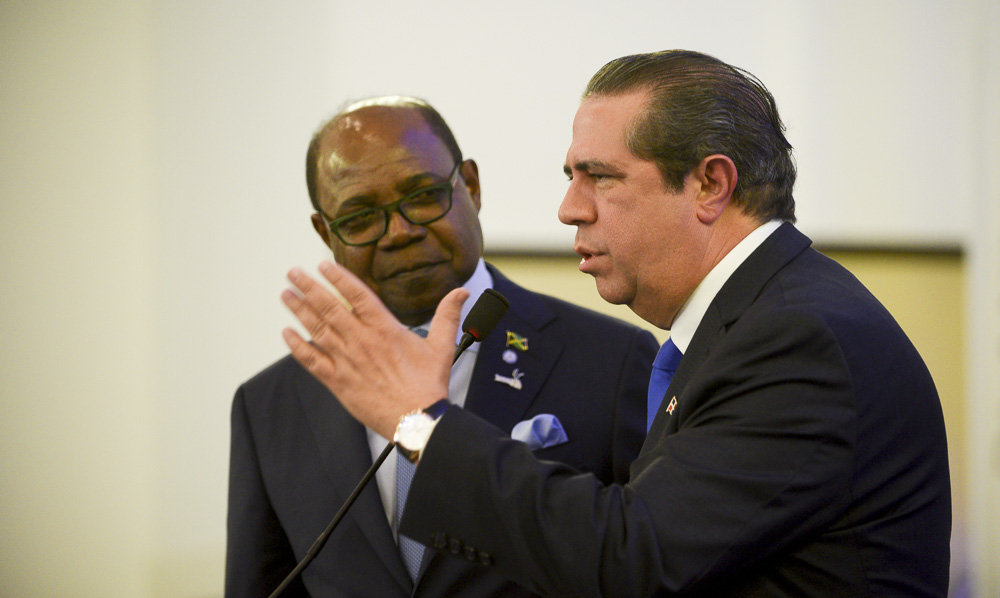
1. “Could you recommend a hoppy beer?”
In the United States, we’re undergoing something of a craft beer revolution. It’s pretty fucking great, because we’re finally no longer the country of faux-German pilsners made from pisswater. But the craft beer revolution has overcompensated for American beer’s previous tastelessness by hopping the bejesus out of their beers. We have beers named “Palate Wrecker,” “Hopsecutioner,” “Hopzilla,” and — no joke — “Hoptimus Prime.”
But beer hoppiness hasn’t been as big of a deal in the UK. Sure, it’s the country that invented the IPA, but whenever I’ve asked for “hoppy” beers in London, I’ve gotten quizzical looks, been asked if I meant, “happy beers,” and if so, what the fuck is a “happy beer,” and then, finally, berated by a surly bartender: “You realize all beers have hops, yeah? So every beer’s a fuckin’ hoppy beer.”
2. “I’m pissed.”
You aren’t angry in the UK if you say this: you’re drunk. And let’s be honest, Americans — the British version of “pissed” makes way more sense.
3. “You will never catch me wearing a fanny pack.”
Actually, a Brit would never say this either, but only because “fanny” in the UK means “vagina” instead of “ass,” and thus “fanny pack” doesn’t exist as a term in the British vernacular. If you think about it, though, “fanny pack” makes more sense using the British meaning than the American one, considering which side of the body the fanny pack is usually worn on. Of course, this common sense doesn’t extend to the British term for fanny pack, which is “bumbag.”
What’s most frustrating about this term is that it originated in Britain, and the term has always referred to the vagina over there. So whoever brought it over to the United States and Canada decided to just fuck with everyone by having the body part it referred to moved three inches to the posterior. It would be like if America decided to take the English word “shoulder” and have it refer to the arm instead.
4. “Oh god, I can’t wait for Girl Scout cookie season.”
They are “Girl Guides” in the UK. Sorry Britain, you win for “pissed,” but we win at naming our proto-feminist organizations.
5. “Ah, I loved Where’s Waldo books when I was a kid.”
Where’s Waldo? is actually a series that was created by a British writer, and it was not called Where’s Waldo? there originally. It was called Where’s Wally? in the UK, and the name was changed for reasons I can’t really fathom — it’s not as if Waldo is a more common name in the United States than Wally – but apparently Wally changed his name in a lot of places around the world. He’s Willie in Afrikaans, Walter in Germany, and Ubaldo in Italian.
This is a fairly common practice between the two countries: decide that the title doesn’t translate well between cultures (even though it basically does) so change it to something dumber. The best other example of this is Harry Potter and the Philosopher’s Stone, which America changed to Sorcerer’s Stone. The annoying thing about this change is that the Philosopher’s Stone is actually an ancient alchemical myth, while the Sorcerer’s Stone is nothing. It’s just an attempt to Disneyfy the title.
Britain occasionally does the same to our cultural products, though. There’s no such thing as White Castle in the UK, so they got to see the cinematic masterpiece Harold and Kumar Get the Munchies, and in Britain, everyone’s favorite heroes in a half-shell are the Teenage Mutant Hero Turtles.
6. “Could I have some sprinkles on my ice cream, please?”
In my home state of Ohio, I’ve heard sprinkles referred to as jimmie sprills, which I will admit is a completely ridiculous name for sprinkles. But in the UK, they have been given the much wordier name, “Hundreds and Thousands.”
I have to give this one to the Brits as well — the name “sprinkles” is charming and to the point, but any time I get to go into an ice cream parlor and ask for “HUNDREDS AND THOUSANDS” of anything, I feel like a billionaire. Or a god.
7. “My favorite year of school was probably my sophomore year.”
The Freshman-Sophomore-Junior-Senior High School system does not translate into British English because they have a different schooling system. The British schooling system is probably incredibly simple to Brits, but to me, it always sounded like the rules to cricket — completely labyrinthine and impenetrable. In the US, it’s relatively simple: first through twelfth grade, maybe followed by college, maybe followed by grad school.
In the UK, there’s college, but it’s not the same as uni, and students have to take things called A Levels and GSCEs and Forms, and you can choose to “sit” certain exams. I think America wins on simplicity, but I actually went to grad school in the UK, and found that I learned a lot more under the British system than I ever did under the American system. So we’ll call this one a tie.












